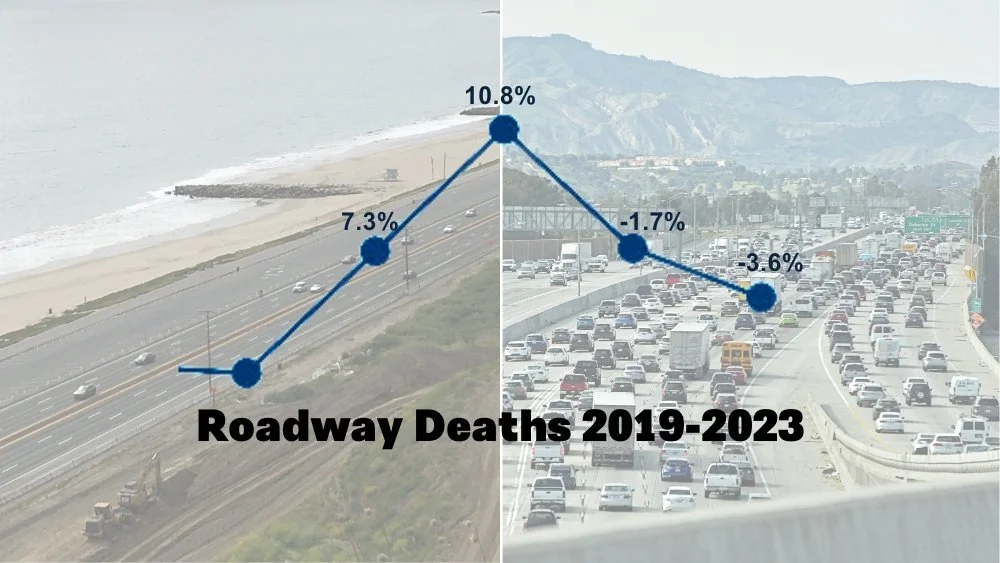Sarah Rose is an artist and advocate from Washington. She joins Tiffany on this episode of The Bottom-Up Revolution to talk about how the intersection of advocacy and art is driving change in her city. (Transcript included.)
Read MoreDuring a recent Planning Commission meeting in Windsor, California, Vice Chair Tim Zahner advocated for using the Strong Towns approach to make the city's streets safer.
Read MoreNYC loved outdoor dining until it didn't. When 13,000 restaurants were forced to dismantle their sheds, one Brooklyn pizzeria found a workaround.
Read MoreThe ripple effects of outdated parking mandates are felt everywhere, making it harder to build the kind of communities people want and need. North Carolina might be about to change that.
Read MoreMost of today’s property tax systems discourage productive use of land while rewarding neglect. Minnesota is considering a policy that would change that.
Read MoreJosh Stewart is an advocate from Littleton, Colorado. A year ago, his 12-year-old son was struck and killed by a car while biking to school. Since then, Josh has been relentlessly pushing for safer streets in his community. He joins Norm today to share his story and what he’s learned over the last year of advocacy work. (Transcript included.)
Read MoreFlorida is celebrating reduced crash fatalities and injuries. But is this decline real, or is it simply a return to pre-COVID conditions? We have to answer this question before declaring victory. Otherwise, we risk learning all the wrong lessons.
Read MoreMike Christensen is the executive director of the Utah Rail Passenger Association. Today, he joins Tiffany to discuss the benefits of passenger rail, including how it can lead to more productive land use. (Transcript included.)
Read MoreThe South Dakota Legislature is considering implementing harsher penalties to deter drag racing on streets. This ignores the street design that allows people to drag race in the first place.
Read MoreIn historic cities, land was treated as a scarce resource and every inch of it was used with ingenuity. This created productive and charming places that could meet the evolving needs of residents. Here are a few ways we can bring that traditional productivity and adaptable charm to modern cities.
Read MoreMaricela Sanchez is a city council member and anesthesiologist from Prosser, Washington. She has lived in several major cities, including LA, San Francisco and NYC. She joins today’s episode to discuss how her travels and profession molded her perspective on what makes a town safe and resilient. (Transcript included.)
Read MoreA new bill in the Illinois General Assembly would require the state DOT to conduct traffic studies after crashes involving pedestrian fatalities. This is a great step in the right direction, and it highlights how local officials can take action too.
Read MoreDo speed cameras actually make roads safer, or are they just another enforcement tool that fails to address the underlying design issues that cause speeding in the first place?
Read MoreLast Wednesday, a plane crash claimed the lives of 67 people, making it the deadliest U.S. air disaster in over two decades. It prompted an immediate, coordinated response on a local, state and federal level. And yet, when over 100 people die in car crashes a day, nothing is done. It’s time for that to change.
Read MoreWhen actor Timothée Chalamet got stuck in traffic on the way to a movie premiere, he showed that rethinking how we travel can lead to better outcomes for everyone.
Read MoreHere’s how Strong Towns Chicago is making its neighborhoods safer, more pedestrian-friendly and more inviting.
Read MoreWhile long-term safety initiatives like updating street design standards or starting a crash response team are important, they must be paired with immediate action. A recent crash in Rochester, New York, shows why.
Read MoreA mysterious plastic sign appeared on a Houston street, raising the speed limit to 60 mph — double the actual limit. Drivers didn’t seem to notice the difference.
Read MoreAfter a fatal crash, Rochester citizens and officials got to work, identifying factors that contributed to the crash, updating street design policies to make streets safer, and establishing a Community Traffic Safety Team to address other dangerous factors before crashes occur.
Read MoreFletcher Williams was hit by three cars in a 13-month period — all within a half-mile radius in Bradenton, Florida. And he’s only one of many crash victims. The design of these streets is inhumanely dangerous and must be changed.
Read More



















